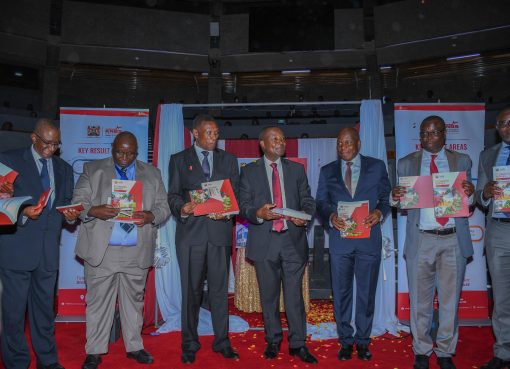The Government on Tuesday started releasing the bodies of victims of the Shakahola massacre to the bereaved families.
Three families of the initial seven victims arrived as early as 8.00 to receive the bodies of their kin, who died following the cultic teachings of embattled preacher Paul Nthenge Mackenzie of the proscribed Good News International (GNI) church.
One family that lost eight relatives received four of the bodies while two other families that had been earmarked to collect the remaining three bodies Tuesday could not do so due to logistical challenges.
A total of 34 out of the 429 bodies that have been lying at the Malindi Sub County Hospital for close to one year are set to be released to relatives for burial after proper identification and debriefing of the relatives.
On Tuesday, family members went through counselling after their details were taken to ascertain whether the bodies belonged to their relatives before the bodies were released to them by government pathologists and forensic experts.
Chief Government Pathologist Hiohansen Oduor and DCI Homicide Director Martin Nyuguto said that other families whose relatives have been identified via DNA process will be released to relatives tomorrow(Thursday).
They urged Kenyans who believe that their relatives were in Shakahola forest to come forth and help with DNA samples to match with the bodies at the morgue.
Representatives of human rights organisations who witnessed lauded the officials for ensuring that the bodies were handled in a humane manner, but faulted the state for the delay in the releasing of the bodies.
The Kenya National Commission on Human Rights (KNHCR) and Transparency International Kenya urged the government to also speed up the process of releasing the bodies and meet the mortuary and burial costs as this could have discouraged some families from claiming the bodies.
KNHCR Chairperson Roseline Odede said the process of identifying the bodies was too slow after it emerged that only 34 out of the 429 bodies had been scientifically identified and linked with relatives, leaving 395.
“As a commission, we will say the process is rather slow. Today for instance, one family has been able to see fossils of their family members. If that is going to be the speed of releasing the bodies, I think we are going to be here for over one month,” she said Tuesday.
According to her, the process is too slow due to lack of necessary equipment and reagents at the Government Chemist.
She urged the government to speed up the process of DNA confirmation and provide funding for transporting the bodies to their homes to be laid to rest as many relatives could not meet the costs.
“We need to find a way of speeding up the process so that the families are really united with their bodies quickly. There are 390 plus yet to be identified positively going at this rate we are going to be here for 10 years trying to identify the bodies,” she added.
Her sentiments were echoed by the Executive Director of the Amnesty International Kenya, Mr Irungu Houghton, who said a significant number of people who lost their loved ones may have failed to come forward to identify their kin due to lack of funds for transporting the bodies and for conducting the burial.
“The government must find the resources to be able to support families to receive and transport their kins’ bodies. Many of them come from 400 to 500 kilometres away. The Ministry of Interior and the National Police Service should be facilitated to do this as quickly as possible,” he said.
“Why is it that these 400 bodies are yet be claimed? We suspect it is because there is very little confidence in many families due to the cost involved.”
Sylvano Opondi who accompanied his uncle Daniel Muratsi from Vihiga County to Malindi to receive their father’s body, Raphael Temba, expressed doubts about whether the body that was set to given to them is indeed that of his father.
“I have come here several times looking for my dad but all in vain. I got a phone call that my DNA matches with one of the bodies. We have seen the body but we are worried we could be given a body that is not ours because there is no documentation,” said Opondi.
Francis Wanje, whose family lost eight members, received bodies which he said would be interred on April 5, 2024. He requested for government assistance to inter the bodies.
Mr Stephen Mwiti, who lost six children, was not lucky to get the bodies of his loved ones as the DNA results had been delayed due to lack of reagents at the Government Chemist.
By Emmanuel Masha and Stella Kanini


